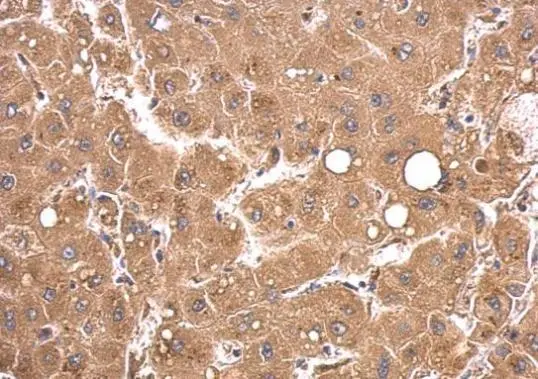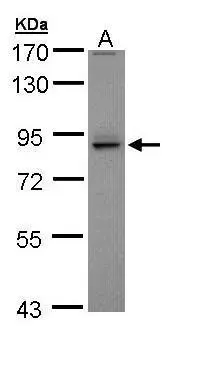Overview
- SupplierGeneTex
- Product NamePEX5 antibody
- Delivery Days Customer9
- CertificationResearch Use Only
- Concentration1 mg/ml
- IsotypeIgG
- Scientific DescriptionThe product of this gene binds to the C-terminal PTS1-type tripeptide peroxisomal targeting signal (SKL-type) and plays an essential role in peroxisomal protein import. Peroxins (PEXs) are proteins that are essential for the assembly of functional peroxisomes. The peroxisome biogenesis disorders (PBDs) are a group of genetically heterogeneous autosomal recessive, lethal diseases characterized by multiple defects in peroxisome function. The peroxisomal biogenesis disorders are a heterogeneous group with at least 14 complementation groups and with more than 1 phenotype being observed in cases falling into particular complementation groups. Although the clinical features of PBD patients vary, cells from all PBD patients exhibit a defect in the import of one or more classes of peroxisomal matrix proteins into the organelle. Defects in this gene are a cause of neonatal adrenoleukodystrophy (NALD), a cause of Zellweger syndrome (ZWS) as well as may be a cause of infantile Refsum disease (IRD). Alternatively spliced transcript variants encoding different isoforms have been identified. [provided by RefSeq]
- Storage Instruction2°C to 8°C,-20°C
- UNSPSC12352203
References
- PEX5 regulates autophagy via the mTORC1-TFEB axis during starvation. Eun SY et al., 2018 Apr 6, Exp Mol MedRead more
- Pharmacological inhibition of catalase induces peroxisome leakage and suppression of LPS induced inflammatory response in Raw 264.7 cell. Mu Y et al., 2021, PLoS OneRead more
- Tysnd1 deficiency in mice interferes with the peroxisomal localization of PTS2 enzymes, causing lipid metabolic abnormalities and male infertility. Mizuno Y et al., 2013, PLoS GenetRead more



